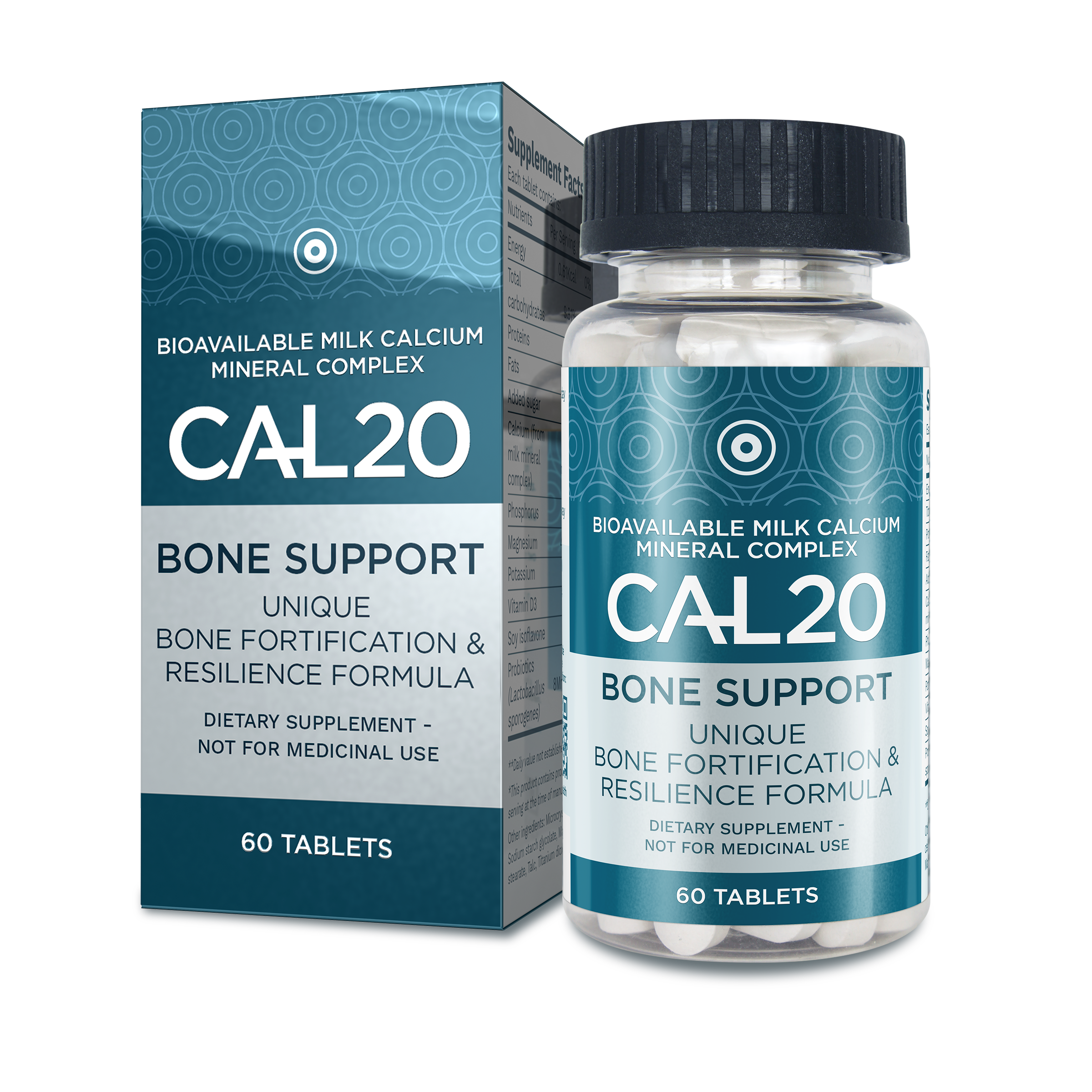After cancer treatment, patients often face a multitude of challenges in their journey towards recovery. Among these challenges is the critical issue of bone health. Cancer treatments such as chemotherapy and radiation can significantly weaken bones, making them more susceptible to fractures and osteoporosis. This is where the importance of calcium supplementation comes into play, offering a beacon of hope for enhancing bone strength and resilience. A standout in this field is Cal20, a calcium supplement that meets the unique needs of individuals post-cancer treatment.
Why Calcium Supplementation is Vital after Chemotherapy and Radiation Treatment
Calcium plays a pivotal role in maintaining bone health. It is essential for the development and maintenance of strong bones and teeth. After cancer treatment, the body’s need for calcium intensifies to repair and rebuild bone tissue that may have been compromised. Adequate calcium intake helps in mitigating the risk of bone density loss, a common side effect of cancer therapies. However, not all calcium supplements are created equal. The source of calcium, its bioavailability, and additional nutrients play a crucial role in its effectiveness.
In an article called The Risk of Osteoporosis and Fracture in Long-term Breast Cancer Survivors in the Journal of Clinical Oncology, the results showed that osteopenia was noted in 50.7% of breast cancer survivors, and 15.1% of patients had osteoporosis.
Cancer treatments, including estrogen and androgen deprivation therapies, chemotherapy-induced ovarian failure in premenopausal women, aromatase inhibitors in postmenopausal women, and antiandrogens in men with NMPC, significantly contribute to bone density reduction. The rate of bone loss due to cancer therapy can be over seven times greater than that caused by normal aging, posing a severe risk for osteoporosis and fractures.
Cal20: A Superior Choice for Bone Health
Cal20 emerges as a revolutionary product in the realm of calcium supplements, very well suited for individuals recovering from cancer treatment. What sets Cal20 apart is its unique composition and the patented extraction process. Unlike traditional calcium supplements sourced from limestone, which may not be easily absorbed by the body, Cal20 is derived from milk – nature’s natural calcium source with a 2:1:03 ratio of calcium:phosphorus:magnesium, which is the same ratios as human bones. This promotes higher bioavailability, meaning the body can absorb and utilize the calcium more efficiently.
Enhanced with Vitamin D3 and Probiotics
Cal20 is not just a simple calcium supplement; it is fortified with Vitamin D3 and probiotics, making it a powerhouse for bone health. Vitamin D3 is crucial for calcium absorption. Without sufficient vitamin D, the body cannot absorb calcium effectively, rendering the supplementation less beneficial. Additionally, the inclusion of probiotics in Cal20 significantly improves the body’s ability to digest all the active ingredients effectively and helps with bone mineralisation. This combination of calcium, vitamin D3, and probiotics in Cal20 addresses the holistic needs of post-cancer treatment patients, promoting not just bone health but also aiding in the recovery and strengthening of the immune system.
Proven Efficacy in Clinical Studies
The efficacy of Cal20 in improving bone density is backed by clinical studies available on the Younger For Life website www.youngerforlife.com.
These studies have shown an impressive 87% increase in bone density in a very short period of time, among participants who used Cal20. This is a testament to its superior formulation and the synergistic effect of its ingredients. This significant improvement in bone density is a crucial factor in preventing fractures and reducing the risk of osteoporosis, making Cal20 an invaluable addition to the recovery regimen of cancer survivors.
The Patented Milk Calcium Extraction Process
The patented extraction process, from milk, used in the production of Cal20 ensures that the calcium is not only of the highest quality but is purely elemental calcium, instantly available for absorption. This extraction process from milk differentiates Cal20 from other supplements and contributes to its high efficacy in supporting bone health.
Conclusion
For individuals recovering from cancer treatment, maintaining bone health is paramount. Cal20 offers a scientifically formulated solution that surpasses conventional calcium supplements. Its unique blend of milk-derived calcium, vitamin D3, and probiotics provides a comprehensive approach to bone health, proven to significantly increase bone density. As more people become aware of the importance of targeted supplementation post-cancer treatment, Cal20 stands out as a great choice, offering hope and support in the journey towards recovery and beyond.




